Intergovernmental Panel on Climate Change. "Climate Change 2022 – Mitigation of Climate Change". April 04, 2022. https://report.ipcc.ch/...
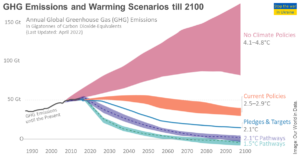 The world will warm by 3.2°C this century even if all the policies to cut carbon that governments have so far adopted were fully implemented. The high overshoot will increase climate risks for vulnerable regions and societies, causing unprecedented heatwaves, terrifying storms, and widespread water shortages and irreversible destructive impacts in vulnerable ecosystems. This report is a desperate plea for the massive scaling of renewable energy technologies and infrastructure, improvements in energy efficiency, and reductions in energy consumption. Although we know this and have the solutions to keep the worst from happening, we fail to take the needed urgent action.
The world will warm by 3.2°C this century even if all the policies to cut carbon that governments have so far adopted were fully implemented. The high overshoot will increase climate risks for vulnerable regions and societies, causing unprecedented heatwaves, terrifying storms, and widespread water shortages and irreversible destructive impacts in vulnerable ecosystems. This report is a desperate plea for the massive scaling of renewable energy technologies and infrastructure, improvements in energy efficiency, and reductions in energy consumption. Although we know this and have the solutions to keep the worst from happening, we fail to take the needed urgent action.
Posted on 09/04/22
Recent Abstracts

Pathway to Net Positive Hospitality Raises Global Ambition for the Hospitality Sector
This initiative aims to enable every hotel to improve their impact, wherever they are on the transition towards sustainability. The sustainability framework accessible to the global hospitality industry will encompass four clear stages and practical tools to guide the industry towards a regenerative impact. The hospi ...
Posted on 29/11/21
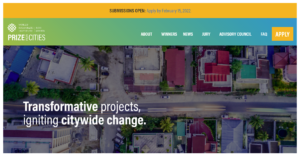
Prize for Cities
Incremental change is not putting communities on track for sustainability, equity and prosperity. Although successful sustainable change is happening, the solutions and successful efforts towards urban transformation are not identified and publicized. To right this, the WRI Ross Center Prize for Cities initiative spo ...
Posted on 28/11/21
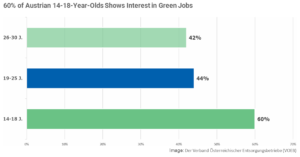
Green Jobs in der Abfallwirtschaft
Professions in the environmental sector – "green jobs " – are now quite popular among Austrians. In a recent study, 43% of respondents showed interest in a green job, as high as 60% among 14- to 18-year-olds. Waste and resource management is viewed as a crisis-proof job (46%) and a job with a purpose and benefit for ...
Posted on 28/11/21
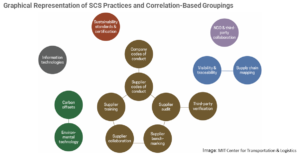
State of Supply Chain Sustainability 2021
This report reveals that company executives are the most significant source of pressure behind corporate commitments to supply chain sustainability (SCS). Given their central role in setting and steering strategies, this suggests that the drive toward supply chain sustainability is a long-term business trend. The rep ...
Posted on 26/11/21
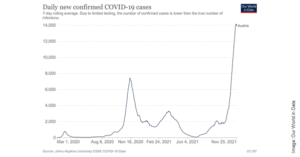
Selective Lockdowns Can Be Ethically Justifiable – Here’s Why
The unvaccinated are at a much greater risk of getting infected and spreading the coronavirus disease. They suffer the most severe symptoms and are the corona patients who occupy over 90% of the ICU beds. Even though they restrict individual freedoms, lockdowns are justifiable where necessary and proportionate to ach ...
Posted on 26/11/21

Marginal Abatement Costs – Focus: Hotel Real Estate
Using marginal abatement cost (MAC) for investment decision-making brings hoteliers, investors, owners and operators multiple benefits, depending on the type and scope and responsibility of investment. The marginal abatement cost curve (MACC) provides a visual representation to easily identify the initiatives that hav ...
Posted on 26/11/21
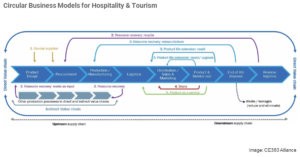
Circular Economy in Travel and Tourism: A Conceptual Framework for a Sustainable, Resilient and Future Proof Industry Transition
This paper suggests that the circular economy (CE) offers a pathway towards a resilient and sustainable, tourism ecosystem. It also suggests that hospitality, travel and tourism has an important role to play in the circular economy transition. The stakeholders can act as enablers of circularity and benefit from share ...
Posted on 25/11/21
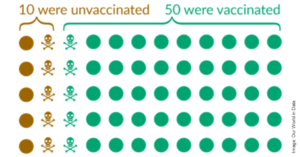
How do death rates from COVID-19 differ between people who are vaccinated and those who are not?
When headline say “Half of those who died from the virus were vaccinated”, we don't know whether or not the vaccine is protecting people. For this, we need to know how many people were vaccinated and how many were not. Comparisons of the absolute numbers is a "base rate fallacy". If 5 of 10 unvaccinated people died, ...
Posted on 24/11/21
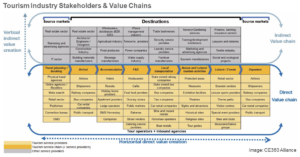
Life Cycle-Based Sustainability and Circularity Indicators for the Tourism Industry: A Literature Review
Carbon footprint/climate change appears to be the most commonly used life-cycle sustainability indicator for tourism and hospitality. Specific sustainability indicators that consider socio-economic and socio-cultural aspects have rarely been specified in the industry's transition towards circular economy. Future life ...
Posted on 23/11/21
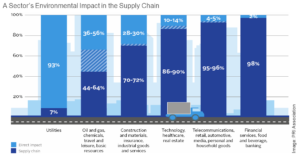
Managing ESG Risk in the Supply Chains of Private Companies and Assets
Supply chains are often highly complex and span many countries and include multiple tiers that are made more opaque by outsourcing and offshoring. Highly interdependent, the relationship between products and services and ESG risk factors are intertwined across sectors and throughout every level of the supply chain. A ...
Posted on 23/11/21

Determining the Sustainability of Hotels in Your Supply Chain
The hospitality industry needs to become more sustainable and hotels globally are focusing on the sustainability impacts of their supply chains. This guidance addresses the environmental and social sustainability issues in hospitality supply chains and recommends steps for determining what sustainability information t ...
Posted on 22/11/21
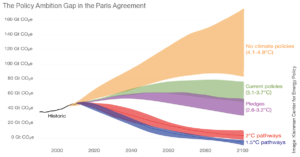
The Policy Challenge for the Inevitable Response to the Climate Transition
Inevitable Policy Response (IPR) anticipates a climate policy acceleration driven in part by investor, corporate and civil society pressure around net zero, climate impacts, and low-carbon technology cost developments. The principles address the different emissions paths between the developed and developing nations in ...
Posted on 22/11/21
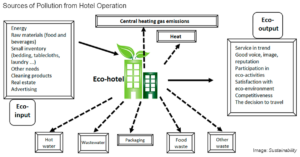
The Role of Performance and Environmental Sustainability Indicators in Hotel Competitiveness
Environmental protection and sustainability are important factors in the hotel business and their competitiveness. Performance and environmental sustainability indicators help hotel managers identify opportunities for employing processes for saving resources to improve the environmental performance of their hotels. T ...
Posted on 20/11/21
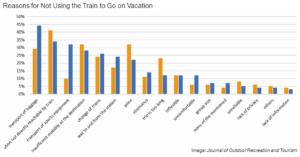
Tourism Mobility and Climate Change – A Review of the Situation in Austria
Travel by car and plane are primary sources of greenhouse gas emissions in tourism. 3 out of 4 guests in Austria use the car and around 10% travel by plane. It is expected that the number of guests arriving by plane will increase after the coronavirus pandemic. Technological improvements and societal trends will not ...
Posted on 19/11/21

Mandatory Corporate Climate Disclosures: Now, but How?
Companies are not required to disclose the information that investors need to price climate risk. Voluntary frameworks, like the Task Force on Climate-Related Financial Disclosures (TCFD), do not bring about the necessary change. This has led to mispricing climate risk and capital misallocation, which harms investors ...
Posted on 19/11/21

